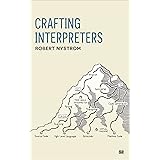| Digital List Price: | $46.99 |
| Kindle Price: | $35.49 Save $11.50 (24%) |
| Sold by: | Amazon.com Services LLC |
Your Memberships & Subscriptions

Download the free Kindle app and start reading Kindle books instantly on your smartphone, tablet, or computer - no Kindle device required.
Read instantly on your browser with Kindle for Web.
Using your mobile phone camera - scan the code below and download the Kindle app.

OK
Programming in Haskell 2nd Edition, Kindle Edition
- ISBN-13978-1316626221
- Edition2nd
- PublisherCambridge University Press
- Publication dateSeptember 1, 2016
- LanguageEnglish
- File size4214 KB
Customers who read this book also read
Editorial Reviews
Review
"The best introduction to Haskell available. There are many paths towards becoming comfortable and competent with the language but I think studying this book is the quickest path. I urge readers of this magazine to recommend Programming in Haskell to anyone who has been thinking about learning the language."
Duncan Coutts, The Monad.Reader
Review of previous edition:
"Where this book excels is in the order and style of its exposition … With its ripe selection of examples and its careful clarity of exposition, the book is a welcome addition to the introductory functional programming literature."
Journal of Functional Programming
"The skills you acquire by studying this book will make you a much better programmer no matter what language you use to actually program in."
Erik Meijer, Facebook, from the Foreword
About the Author
Product details
- ASIN : B01JGMEA3U
- Publisher : Cambridge University Press; 2nd edition (September 1, 2016)
- Publication date : September 1, 2016
- Language : English
- File size : 4214 KB
- Simultaneous device usage : Up to 4 simultaneous devices, per publisher limits
- Text-to-Speech : Enabled
- Screen Reader : Supported
- Enhanced typesetting : Enabled
- X-Ray : Not Enabled
- Word Wise : Not Enabled
- Sticky notes : On Kindle Scribe
- Print length : 322 pages
- Page numbers source ISBN : 1316626229
- Best Sellers Rank: #303,979 in Kindle Store (See Top 100 in Kindle Store)
- #38 in Object Oriented Design
- #140 in Object-Oriented Design
- #298 in Programing Languages & Tools
- Customer Reviews:
About the author

Graham Hutton is Professor of Computer Science at the University of Nottingham, where he has taught Haskell to thousands of students and received many awards for his teaching. Graham has also served as an editor of the Journal of Functional Programming, chair of the International Conference on Functional Programming, vice-chair of the ACM Special Interest Group on Programming Languages, board member of the Haskell Foundation, and director of the Midlands Graduate School.
Customer reviews
Customer Reviews, including Product Star Ratings help customers to learn more about the product and decide whether it is the right product for them.
To calculate the overall star rating and percentage breakdown by star, we don’t use a simple average. Instead, our system considers things like how recent a review is and if the reviewer bought the item on Amazon. It also analyzed reviews to verify trustworthiness.
Learn more how customers reviews work on Amazon-
Top reviews
Top reviews from the United States
There was a problem filtering reviews right now. Please try again later.
To give a better analogy, the first time I read this book quickly and it was like visiting a Karate class that I wanted to join. I saw the different types of forms that existed that one could practice and found them interesting. My second time, I actually joined the Karate class and put in some time and effort to practice the forms and the experience was very rewarding. It exercised and strengthened my (brain) muscles in many new ways and taught me things my body (brain) didn't think possible before :-)
The author's deep understanding of functional programming concepts and Haskell shines through the writing on many occasions. He carefully sets up explanations and examples that build one on top of another, and manages to explain some of the thorniest ideas of Haskell (applicatives and monads, I'm looking at you) very clearly; most importantly, the why of things is often explained, along with some important historical background that sheds some light on the design choices made by the language.
There's even space in this book for a few extended programming examples and exercises, both of which are very important for a programming book. Some of the exercises come with solutions in an appendix - a truly impressive information density for a ~250 page book.
My favorite chapter is Monadic Parsers; parser combinators is a very interesting topic, and I went through several resources that tried to explain it in Haskell. The treatment in this book is much better than anything I read before (it even inspired a blog post to document my understanding).
On the flip side, the last two chapters - on automatically proving programs correct, as well as deriving correct programs from definitions - were puzzling. Felt too academic and somewhat out of place in a book teaching a programming language. I suppose that when you write a book, it's your prerogative to include some of the research topics you're excited about and pitch them to a more general audience :-)
The exercises are well posed problems and help extend and test your understanding of the materials covered. I'm now reading Programming Haskell from first principles because I want another text that will show me examples of building [large] projects. The skills I picked up from PiH are no doubt showing to be useful as I read PHffp.
I am delighted that I am learning Haskell, thanks to beauty of the language and to Graham's superior authorship of this text.
Top reviews from other countries
Raccoglie teoria, esempi ed esercizi.
Consigliato a studenti di informatica/matematica. Richiede poche conoscenze di base.
Todos los capítulos siguen una estructura clara, los ejemplos están perfectamente elegidos y contiene ejercicios para que puedas asegurarte de que entiendes todos los conceptos.
El autor no presupone nada sobre la formación del lector (no hace falta ser un matemático ni un programador), lo que lo hace ideal para cualquier tipo de público.
El libro intercala capítulos prácticos con otros teóricos de forma que no se hace muy denso.
Los ejemplos no se apoyan demasiado en conceptos previos por lo que es factible leerlo de forma no secuancial.
Recomendaría este libro a cualquier persona que quiera iniciarse en la programación con Haskell independientemente de sus conocimientos actuales.









